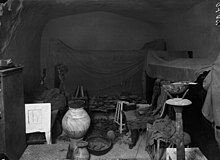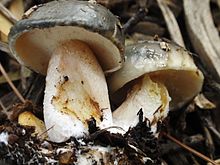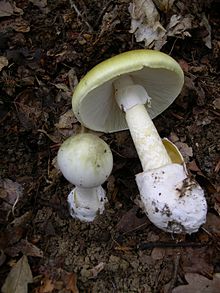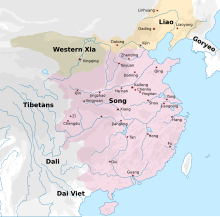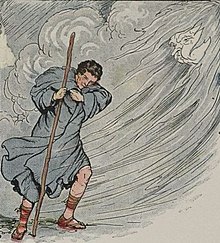Portal:Science
Science portal

Science is a systematic discipline that builds and organises knowledge in the form of testable hypotheses and predictions about the universe. Modern science is typically divided into two or three major branches: the natural sciences (e.g., physics, chemistry, and biology), which study the physical world; and the behavioural sciences (e.g., economics, psychology, and sociology), which study individuals and societies. The formal sciences (e.g., logic, mathematics, and theoretical computer science), which study formal systems governed by axioms and rules, are sometimes described as being sciences as well; however, they are often regarded as a separate field because they rely on deductive reasoning instead of the scientific method or empirical evidence as their main methodology. Applied sciences are disciplines that use scientific knowledge for practical purposes, such as engineering and medicine. (Full article...)
Featured article -
Featured pictures
Vital articles

Biology is the scientific study of life. It is a natural science with a broad scope but has several unifying themes that tie it together as a single, coherent field. For instance, all organisms are made up of at least one cell that processes hereditary information encoded in genes, which can be transmitted to future generations. Another major theme is evolution, which explains the unity and diversity of life. Energy processing is also important to life as it allows organisms to move, grow, and reproduce. Finally, all organisms are able to regulate their own internal environments. (Full article...)
Did you know...
- ... that Cowbridge Girls School, built in 1896, was unusual for its time in providing a science laboratory for the students?
- ... that diverse fields study the mind, including psychology, neuroscience, cognitive science, and philosophy?
- ... that examples of artificial planets in science fiction include Riverworld, the Well World, and the Death Star?
- ... that a year after becoming the first woman president of the Canadian Political Science Association, Caroline Andrew moderated the first Canadian leaders' debate on women's issues?
- ... that West Virginia nursing professor Christine Elizabeth Abrahamsen wrote science-fiction and Gothic novels under the pseudonyms Christabel and Kathleen Westcott?
- ... that the Polish science fiction novel Extensa marked the growing recognition of its writer, Jacek Dukaj, in Poland?
Get involved
| This portal needs to be updated. Please help update this portal to reflect recent events or newly available information. Relevant discussion may be found on the talk page. |

|

|
Science News
- 25 December 2024 – 2024 in archosaur paleontology
- Scientists confirm the discovery of the Alpkarakush kyrgyzicus dinosaur species in Kyrgyzstan, the first theropod from the Jurassic period to be discovered in Central Asia. (Tempo)
- 23 December 2024 –
- A team of scientists at the North-Eastern Federal University in Sakha Republic, Russia, unveil the highly preserved remains of a 50,000-year-old female juvenile woolly mammoth named Yana. The researchers say Yana was roughly about one-year-old when she died, likely from drowning, and was discovered in the Batagaika crater by locals. (BBC News)
- 19 December 2024 – Mexican drug war
- Two soldiers are killed after an explosion caused by a improvised landmine at a drug laboratory in Michoacán, Mexico. Three days ago, two other soldiers were killed and three more injured in Michoacán during a similiar incident. (AP)
- 12 December 2024 –
- Edith Heard, biologist specialist of epigenetics and director-general of the European Molecular Biology Laboratory, is awarded the CNRS Gold Medal, France's highest research award. (CNRS - Le Journal)
- 21 November 2024 –
- The European Southern Observatory announces that its astronomers in Chile capture the first close-up image of a star outside the Milky Way. (The New York Times)
- 20 November 2024 – Discoveries of exoplanets
- In a study published by the Nature journal, astronomers announce the discovery of IRAS 04125+2902 b, a newborn exoplanet. The discovery was made by Madyson Barber, a graduate student at the University of North Carolina at Chapel Hill. (Nature) (ABC News)




